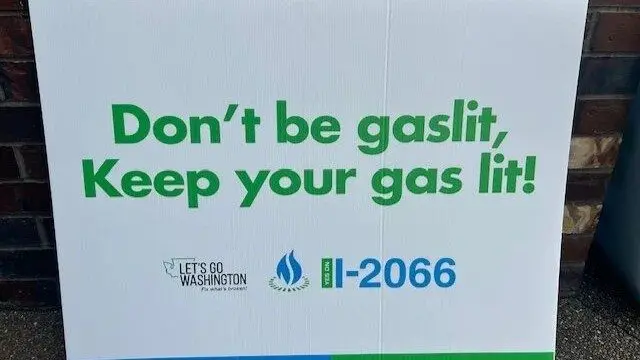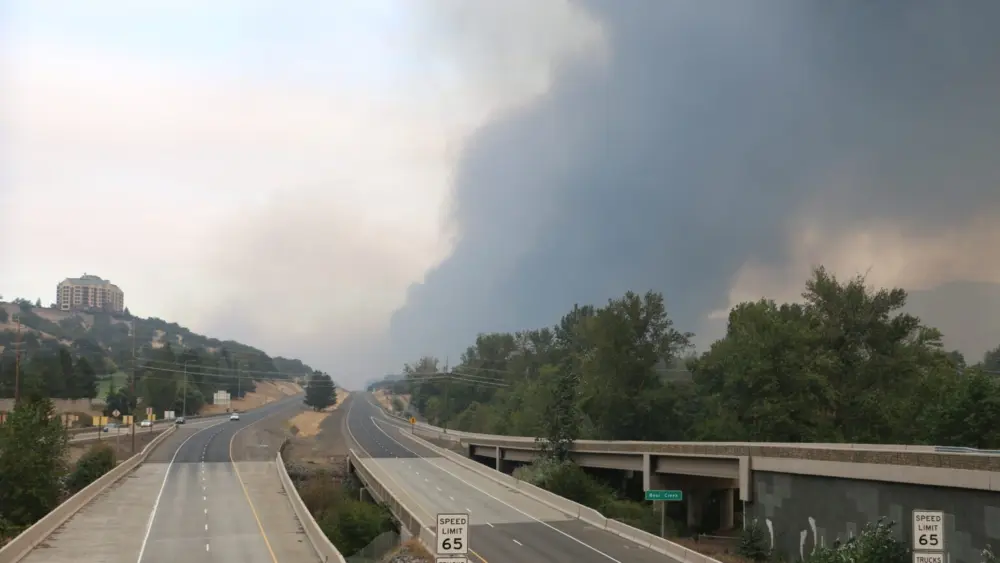OLYMPIA, WA – The Washington Supreme Court announced Wednesday that it will take up a case involving the constitutionality of Initiative 2066, which would require utilities to provide natural gas service to any eligible customer who requests it and would repeal regulations that restricted natural gas use.
I-2066 passed by a narrow margin in November 2024, with about 52% of voters in favor.
In March, King County Superior Court Judge Sandra Widlan ruled I-2066 unconstitutional, claiming it violated the state’s “single-subject rule” for initiatives. Widlan found that the initiative was too broad and improperly combined multiple unrelated subjects, which could confuse voters.
Chief Justice Debra Stephens wrote that Washington’s highest court will hear the case instead of transferring it to the Court of Appeals.
Just ahead of Widlan’s ruling, former Gov. Jay Inslee, who championed policies concerning climate change during his 12 years in office, told The Center Square he was confident the measure would be found unconstitutional.
“My view is the initiative threw a curveball to voters,” Inslee explained, “because it included so many things that were extraneous to the original proposal. Some were voting on one issue, and some were voting on a different issue.”
Shortly after Widlan’s decision, state Attorney General Nick Brown and the Building Industry Association of Washington asked the state Supreme Court to review the case directly.
“While I personally disagreed with I-2066, it was passed by Washington voters and is the law of the state,” Brown said in a late May news release. “My job as Attorney General is to enforce and defend the laws of Washington, and I will continue to vigorously do so in this case.”
BIAW Vice President Greg Lane spoke with The Center Square shortly after the announcement by the state Supreme Court.
“We were anticipating at some point we would get word, so I’m not surprised, but I’m certainly very pleased,” Lane said. “There was always the chance that they wouldn’t take it up, but given the important constitutional issue at hand here, typically the Supreme Court takes these types of cases on direct review.”
Lane noted voters supported I-2066.
“We were able to collect 546,000 signatures, which was the second most ever in that period of time,” he said, referring to the tight schedule initiative supporters had for gathering enough signatures to qualify it for the fall 2024 ballot. “It’s just really the public responded to protecting natural gas, and protecting their choice, and not having it dictated to them.”
He called it “ludicrous” to suggest that voters were confused by I-2066.
Voters knew what they were voting for,” said Lane. “They passed this initiative, and they deserve to have this resolved.”
With the ultimate fate of I-2066 still to be decided, the Washington Building Code Council has held off on making any changes to building codes regarding natural gas.
“Given the crisis that we’re in in terms of affordable housing in our entire state right now, with the new energy code added, depending on the size of your house, [it adds] anywhere between $12,000 to $20,000 onto the new price of a home,” Lane explained. “This really is a direct hit to consumers, both in higher utility rates, having to make that cost of conversion from natural gas to electricity, and then also adding the price of housing overall.
“Consumers should have the choice of the energy source that they utilize in their home, and they can make wise choices. Some will choose to go electric, and some will choose to stick with natural gas because it’s more reliable and it’s less expensive, and they should have the right to do that.”
There was no indication from the state Supreme Court when it will hear arguments in the case, but it’s likely the court will take it up later this year.
“And then after we have the hearing, we’ll have to wait some period of time for the decision to come out,” Lane said. “Hopefully, they expedite that decision and get it out there … but it’ll be in 2026 before we ultimately have a decision from the court.”
Legal options remain, he said, even if the state Supreme Court strikes down the initiative.
“Congress also is considering a bill that would prevent state and local governments from banning natural gas across the country,” Lane said. “So, we’re working on supporting that bill and trying to get that passed through Congress. The Trump administration is also, through the Department of Justice, examining states that are putting undue burdens on to ratepayers and people regarding energy choices. So, you know, there are a lot of things happening at the federal level, but the most effective change would be to have Initiative 2066 upheld. That’s what the people decided in the state of Washington.”





